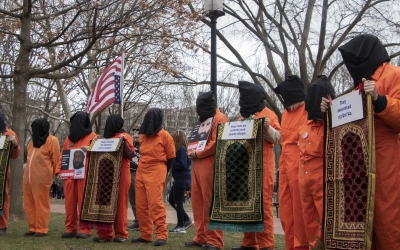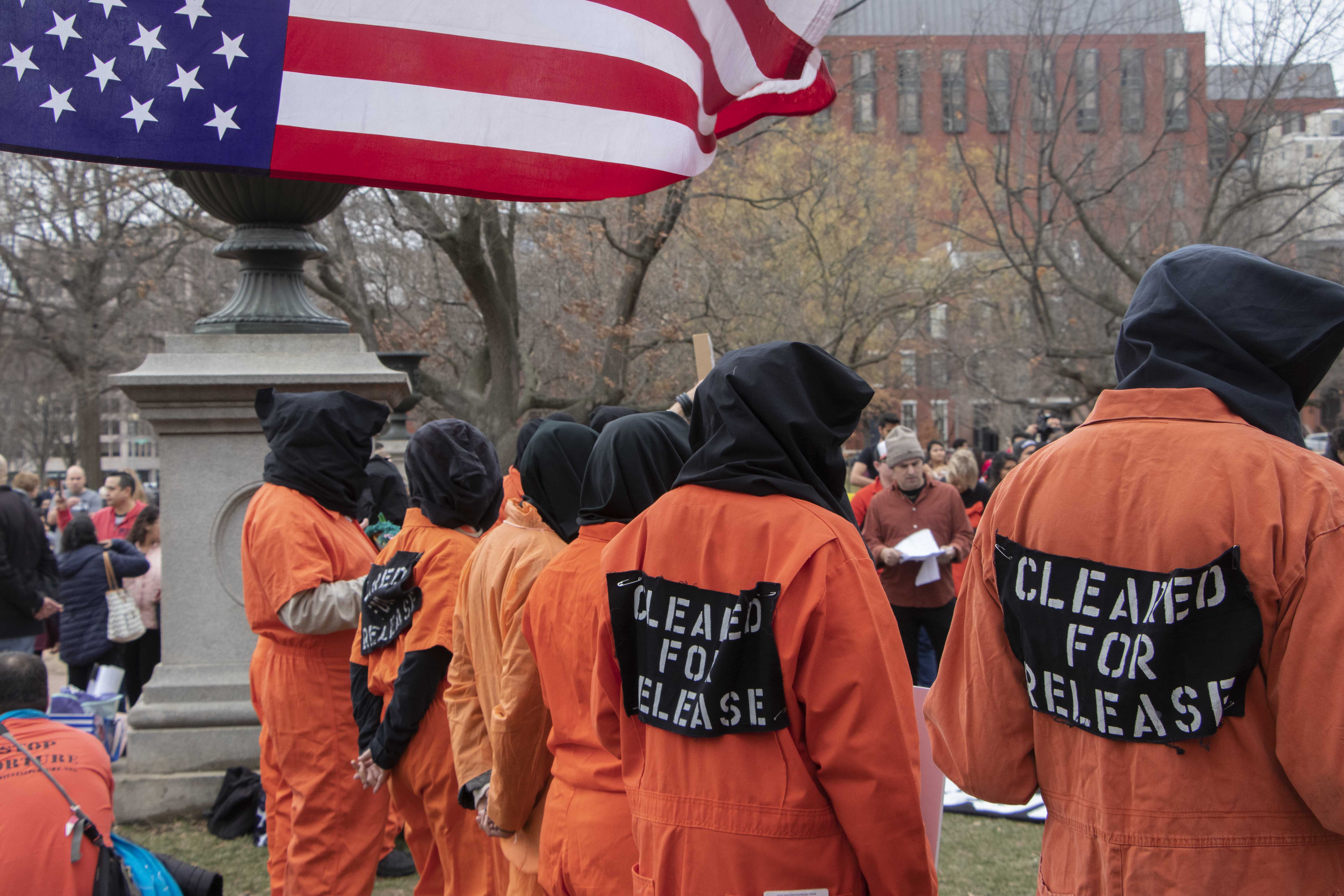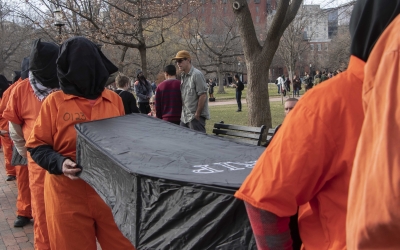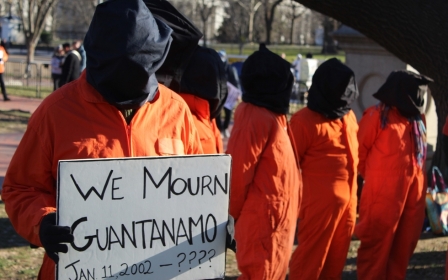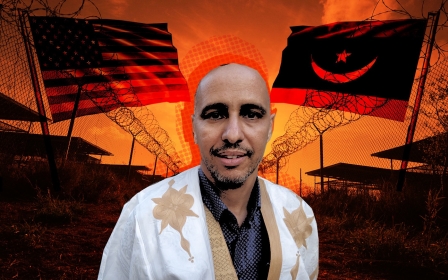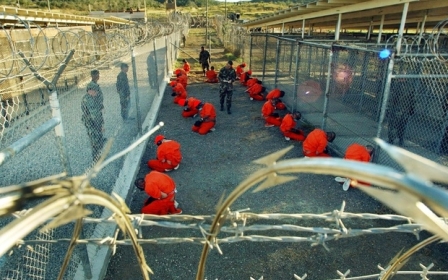'Close Guantanamo': Protesters rally in Washington on anniversary of prison opening
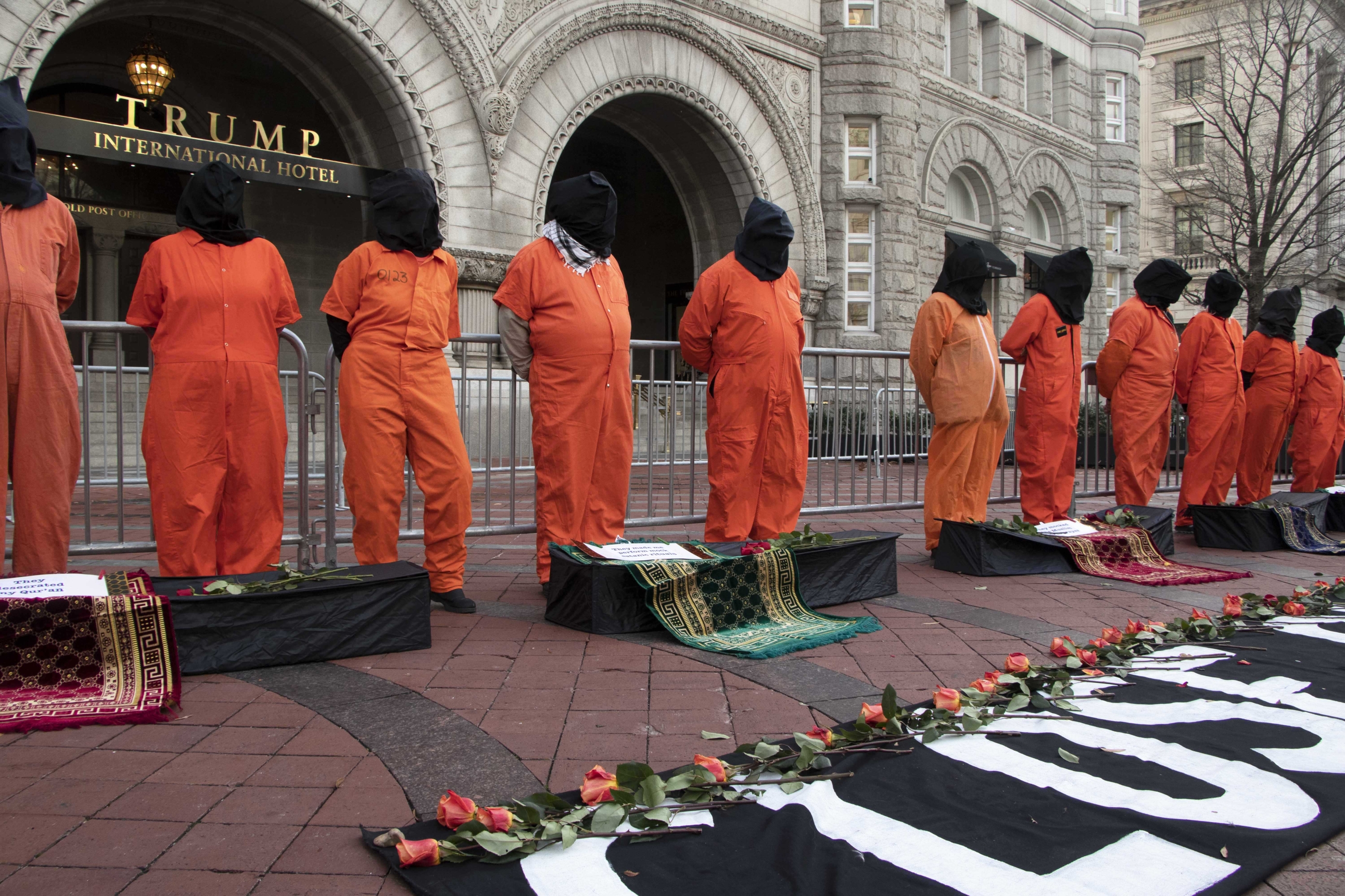
Men and women dressed in orange jumpsuits lined up in front of the White House.
Their faces were covered with black bags, while some held Muslim prayer rugs with posters attached.
Some of the posters read: "They desecrated my Quran... They made me perform mock Satanic rituals... They forcibly shaved my head and beard... They forcibly baptised me."
The demonstrators represented the hundreds of detainees who have been imprisoned at Guantanamo Bay by the US government.
New MEE newsletter: Jerusalem Dispatch
Sign up to get the latest insights and analysis on Israel-Palestine, alongside Turkey Unpacked and other MEE newsletters
On the 18th anniversary of the opening of the prison, organisers and demonstrators rallied on Saturday, led by Witness Against Torture, a group calling for the closure of Guantanamo Bay's detention facilities.
James Yee, a former Muslim chaplain at the facility, described it as "the gulag of our time".
Yee, who served as Guantanamo's Muslim chaplain from 2002 to 2003, talked about some of the abuses faced by prisoners, including prolonged solitary confinement, sleep deprivation, subjection to freezing cold temperatures, brutal beatings and even sexual assault by female interrogators.
"A legal black hole, a place that leaders around the globe have denounced, a place that leaders in our country, the United States, have created and continued to allow to exist," Yee said, referring to the prison.
While former US president Barack Obama issued an executive order to close the prison at Guantanamo, President Donald Trump revoked it after taking office. He proclaimed that the US can detain "certain persons captured in connection with an armed conflict for the duration of the conflict".
Structural Islamophobia
The facility, built on US-controlled land in Cuba, was set up to house suspected dangerous militants from US wars after the 9/11 attacks.
Still, civil rights activists have criticised it for many reasons, including the abuse faced by detainees and their lack of due process, as inmates have few legal resources and often face no charges against which they can defend themselves.
Maha Hilal, an organiser with Witness Against Torture, emphasised that the prison is a physical structure for a global Islamophobia campaign.
"It has taken years for people to recognise Guantanamo Bay as a site of humiliation, degradation, dehumanisation and ultimately the institutionalisation of Islamophobia," Hilal said at the rally.
"We are here to resist every single problematic Islamophobic narrative that helps to justify and legitimise the prison's continued operation."
Released, but not free
Since the prison was opened in 2002, it has confined about 780 detainees. Now, 18 years later, the population has decreased to 40.
While roughly 730 people have been released, many of whom were never charged with crimes, their lives continue to be restricted.
"Those who have been released have lived extremely difficult lives, marked by the stigma of terrorism," said Hilal, who also serves as co-director of the Justice for Muslims Collective, an organisation working to combat structural Islamophobia in the US.
During the demonstration, Shelby Sullivan-Bennis, an attorney for multiple Guantanamo detainees, read out a letter from one of her clients, Mansoor al-Dayfi.
Dayfi was held without charge in the prison from 2002 until 2016, when he was transferred to Serbia.
"We miss our families, our lives, our freedom and the world. Please don't let us die here. Please close Guantanamo," Dayfi's letter said, as read by Sullivan-Bennis.
After demonstrating in front of the White House, the protesters in orange jumpsuits carried mock coffins, representing those who died while imprisoned, and walked several blocks the Trump International Hotel.
Ten people have died in Guantanamo, according to Hilal.
At the hotel, the demonstrators set down the coffins, placed roses next to them and held a mock funeral.
"Dear brothers, be well and rise up, knowing that you are not alone. We hear you, see you and will never let your lives be in vain," Hilal said, reading a letter that she had written to the prisoners at Guantanamo.
Middle East Eye delivers independent and unrivalled coverage and analysis of the Middle East, North Africa and beyond. To learn more about republishing this content and the associated fees, please fill out this form. More about MEE can be found here.


